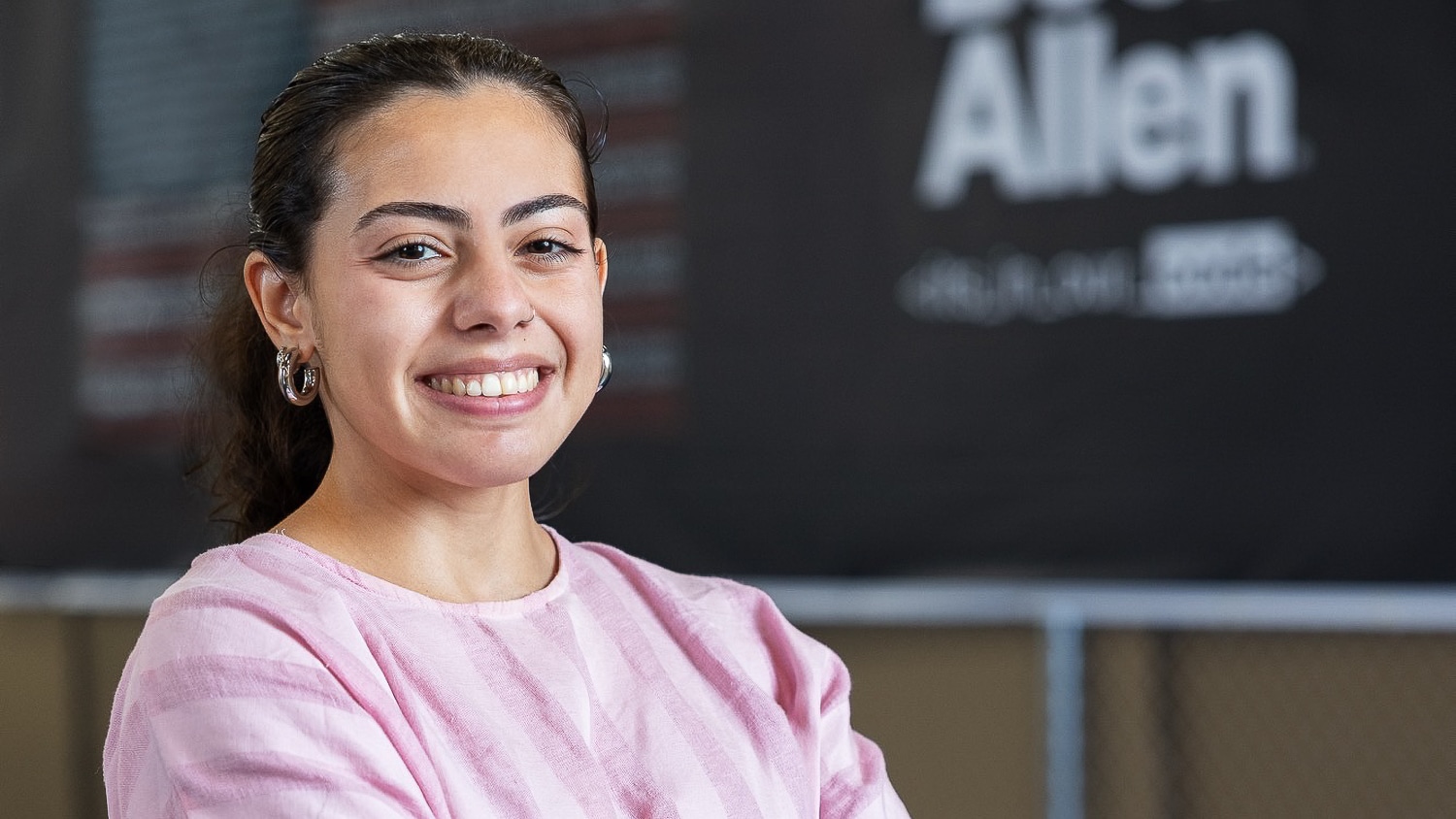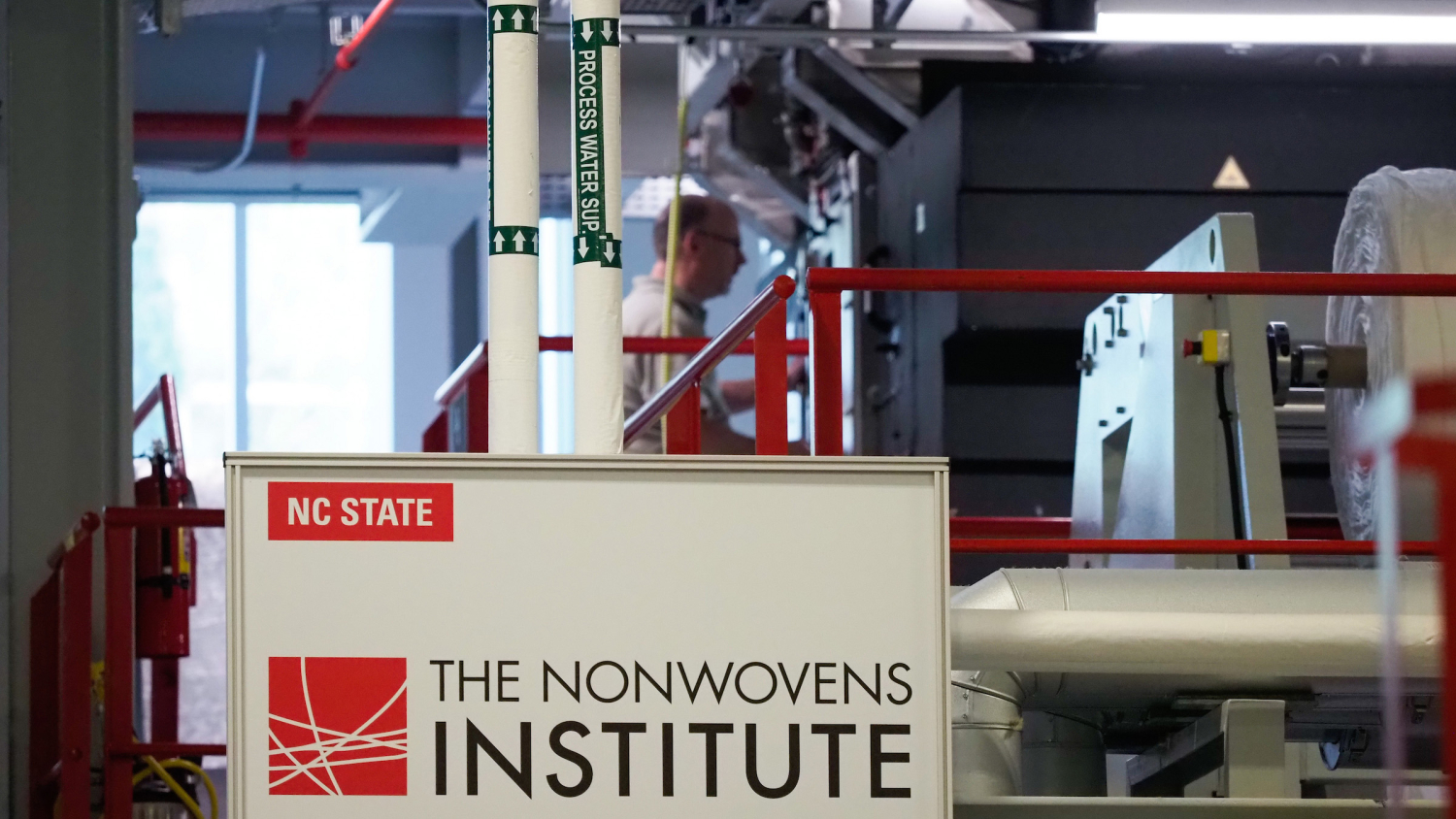College’s First Female Faculty Member Establishes Charitable Trust to Support Students and Faculty

By Lisa Coston Hall
Frances Massey loves textiles. Spend a little time at NC State’s Wilson College of Textiles with the Raleigh resident, and that fact quickly becomes clear.
She speaks eloquently about the industry and enthusiastically about details such as types of fibers. Her hands grow animated and the retired professor in her emerges.
“Textiles are so important. You can teach any subject—history, civics, science or economics—with textiles as the foundation. They’re a necessity in everything, from roadways and airplanes, to medical uses.”
“Textiles are so important,” she says. “You can teach any subject—history, civics, science or economics—with textiles as the foundation. They’re a necessity in everything, from roadways and airplanes, to medical uses.”
Walking the hallways and laboratories with Massey offers hints too of the impact she made as the then-College of Textiles’ first female faculty member. Former students and colleagues from her 1963 to 1993 career greet her, and she names several who now lead textile companies and organizations.
It’s important to Massey that she continues contributing to education at NC State. Through the sale of a vacation home, she has set up a charitable trust that will fund endowments for the Wilson College of Textiles and for NC State Libraries. The textiles endowment portion of her planned gift will benefit graduate fellowships, an often unmet need. She chose to support the libraries as well in order to make a difference for all students and faculty.
“I don’t have children so this is a way that I can really give back and help young people,” Massey says. “And I was born during the Depression, so I’ve always worked hard and been careful with money.”
She grew up on a farm in Spivey’s Corner, Sampson County. Her parents, Jesse and Esther Wilson, put a premium on education for their seven children. After graduating from then East Carolina Teachers College, Massey taught home economics at Nash and Wake County high schools.
As a young girl participating in 4-H, she had won dress-making competitions, and her passion within home economics was sewing and textiles. After 11 years of teaching, Massey decided to return to school, earning a graduate degree in textiles from UNC Greensboro and completing an assistantship at Blue Bell. Her late husband, George, worked in farm equipment sales. Through university connections, he heard of a job opening at NC State.

Hired as an instructor, Massey eventually retired as assistant professor of textile and apparel technology and management. In the 1970s, she became the first female member of Phi Psi national textile professional fraternity.
“I was in the right place at the right time,” she says, laughing. “It wasn’t always easy and there weren’t many female students for the first few years. But I was very fortunate to get a job at the [then] College of Textiles. I really enjoyed it.”
Massey taught labs specializing in fiber microscopy — which she felt really challenged students — and the freshman-level introduction to textiles, as well as weaving, knitting and nonwoven labs, and a course in fabric formation systems. Few students earned textile degrees without passing through one of her labs.
Her proudest accomplishment was developing and teaching a course on textiles’ end uses. “That really tied it all together. You aren’t just making yarn and fabric — you’re actually making something useful from them,” she notes.
Today, she stays busy with retired faculty and teachers groups, sometimes taking or leading tours of the Wilson College of Textiles and local textiles firms. Her volunteer activities include serving as a train host on the Piedmont and Carolinian routes, and she enjoys Wolfpack sports events.
About 90% of students in her former department are women, the majority of textile engineering, chemistry and science students are women, and the college has many female faculty members. “And technology, more manmade fibers … a lot of things have changed,” Massey says. But her generosity will ensure that her impact at NC State remains a constant for years to come.
- Categories:


